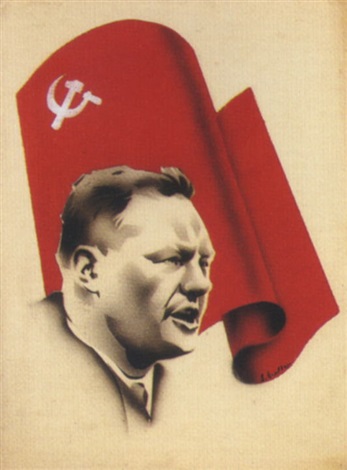
[The “outstretched hand” in the title is in reference to Maurice Thorez’s–the leader of the PCF at the time–main tendue policy. Mandouze is imploring Catholics to collaborate with the French Communist Party (PCF), though, in the end, very few did. More about this in Francis J. Murphy’s Communists and Catholics in France, 1936-1939: The Politics of the Outstretched Hand. (Note: It should go without saying that the views expressed in this article are not (at least as a whole) necessarily endorsed by the person who runs this site. This article is simply here for archival purposes.]

We are now at an intermediary stage where, in spite of some progress, the spiritual and temporal authorities are squabbling over the delimitations of their respective fields. . . . Obviously Marxism encroaches on the spiritual order, and Christianity on the temporal; the encroachments on both sides are probably interdependent. Be that as it may, each camp would profit by refraining from overstepping, however slightly, the other’s boundaries. The recognition of limits is the basis of efficacy and even of truth. “To possess the promise of eternal life” does not imply that one holds the key to the problems of life on earth. . . .
The truth is that, in essence, the spiritual rightfully belongs to Christianity, just as the political field is rightfully that of Marxism; and the Communist party is no more entitled to cavil at Christianity about the Last Things . . . than the Church is entitled to question the right of Marxism to choose its actual means to a temporal end. . . .
The risk of oversimplification notwithstanding, we say that, with due regard for special vocations and excluding any implication of Christianization of the Marxist masses or of Marxization(!) of the Christian masses, Marxism–even if it is utterly indifferent to the spiritual or objects to it–must recognize the legitimacy of a spiritual field, just as Christianity–even if it has no hold whatever on the political and considers it dangerous–must recognize the legitimacy of its existence. Christianity and Marxism will be strong only insofar as each respects its own boundaries. They will be influential to the extent that they admit of other authorities in matters with which they are not competent to deal and should not deal. An organic combination of their respective endeavors might later be possible. . . .
The existence of progressisme is tantamount to an acknowledgement of another fact: no revolution is possible without the Communists, but the Communists cannot bring it about alone. The Marxists themselves have noted this and have drawn for their guidance conclusions which far outweigh mere tactical considerations.

The Christian progressiste is very openly and definitely with the Communists in the fight they are currently waging. . . . In the present circumstances and with the Communists now holding the position they have in French politics, there are only two ways of handling the question: to be with them or against them. I am with them for the reason stated above–namely, that although it is possible to be a progressiste without being bound by Marxist tents, it is quite impossible to strive for a progressive policy while ignoring the Communists. . . .
In political life it is impossible to be simultaneously for capitalism and against it. To denounce the abuses of capitalism, as the Church does, leaves room for two distinct policies: either to endeavor to correct the abuses without challenging the validity of capitalism itself and thus really to defend capitalism; or else to put an end to the abuses by removing their cause. . . .
Our collaboration with the Communists in the political field results not from identical doctrinal views of systematic alignment, but from a practical consideration, namely that in spite of all that we can hold against them, the Communists hold the most cogent political views backed by the greatest and soundest mass support, and have thus taken the lead in the political struggle, the field which their efficiency is greatest.
Our collaboration with the Communists does not result from an inferiority complex but is simply an acknowledgement of their superiority in the field of politics. It protects us from the temptation that has beset Christians for centuries: to flee from the political battlefield when the time has come to charge. That is why our political discipline, which has in no way been imposed on us–the Communist party is not entitled to give us orders–is nevertheless a real discipline. Its rules do not come down to us through hierarchical channels; our discipline is truly political.
[Original source: André Mandouze, “Prendre la main tendue,” in Les chrétiens et la politique, op. cit., pp. 54-55, 62-63, 71-75.]
[Translation found in The Catholic Avant-Garde: French Catholicism Since World War II – edited by Jean-Marie Domenach and Robert de Montvalon, pg. 163-165]